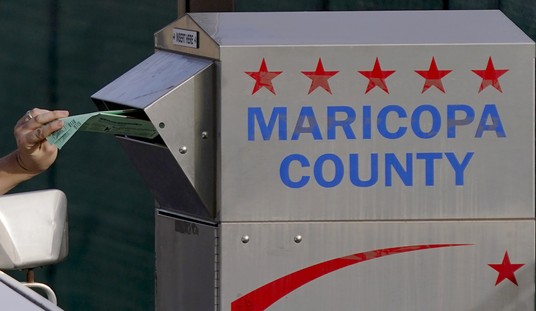The opinions expressed in guest op-eds are those of the writer and do not necessarily represent the views of RedState.com.
Over the past few years, environmental, social, and governance (ESG) metrics have become ubiquitous among the biggest Wall Street investment firms and Fortune 500 companies. From BlackRock to Vanguard, almost all of the nation’s largest financial management companies have hopped on the ESG bandwagon, along with the trillions of dollars in assets under their control, which in actuality mostly belongs to everyday Americans in the form of public pension plans and various retirement accounts.
While much has been made over whether or not ESG is a sound investing framework that prioritizes left-wing ideological ends over profits, an even greater case can be made that ESG, as currently practiced, violates America’s age-old antitrust laws.
The argument that ESG violates America’s antitrust laws is certainly gaining momentum in the House of Representatives, which will soon be controlled by the GOP.
On December 6, Rep. Jim Jordan (R-OH) announced that the Committee on the Judiciary will investigate this very matter when the 118th U.S. Congress convenes next month.
According to a letter penned by Jordan and several of his Republican colleagues,
“Woke corporations are collectively adopting and imposing progressive policy goals that American consumers do not want or do not need. An individual company’s use of corporate resources for progressive aims might violate fiduciary duties or other laws, harming its viability and alienating consumers. But when companies agree to work together to punish disfavored views or industries, or to otherwise advance environmental, social, and governance (ESG) goals, this coordinated behavior may violate the antitrust laws and harm American consumers.”
Specifically, Jordan cites that,
“Corporate America’s collusion in pursuit of ESG goals may violate federal or state antitrust laws. Antitrust law is generally ‘skeptical of cooperation among competitors’ over certain matters, and that includes coordination over ESG goals. The ‘traditional principles that prohibit cooperation among competitors in ways that restrict price, output, or quality’ apply ‘regardless of their values-based intent.’ As one antitrust expert has explained, ‘[t]he loftiest of purported motivations do not excuse anti-competitive collusion among rivals. That’s long-standing antitrust law.’”
Jordan concluded his letter with this ominous warning, “Ultimately, ‘[a]dvancing the ESG agenda requires that the owners of capital collude to restrict the supply of certain goods and services’ and— regardless of motivations —that is a ‘textbook antitrust violation.’”
In other words, Jordan is simply saying that it is against the law for financial firms such as BlackRock to engage in collusive behavior, even if the behavior is predicated on averting the so-called existential crisis of climate change.
Meanwhile, several Republican senators also recently announced that they believe ESG violates antitrust laws, and they are requesting that the Department of Justice and Federal Trade Commission (FTC) investigate the matter.
Per a letter written by Sen. Marsha Blackburn (R-TN),
“During a recent Senate Judiciary Committee hearing, FTC Commissioner Lina Khan and Assistant Attorney General of the Antitrust Division Jonathan Kanter were asked to share their thoughts about ESG collusion. Commissioner Khan emphasized that there is no ESG exemption to antitrust laws. Regarding ESG group initiatives, she added, ‘Certainly, those types of cooperation or agreements, in as much as they can affect competition, are always relevant to’ the FTC. Assistant AG Kanter emphasized his own agreement with ‘the sentiment that collusion is anticompetitive, and I also agree with the underlying sentiment that when firms have substantial power and they use that power to achieve anticompetitive ends, that should be actionable under the antitrust laws.’”
Blackburn added,
“The ESG movement attempts to weaponize corporations to reshape society in ways that Americans would never endorse at the ballot box. Of particular concern is the collusive effort to restrict the supply of coal, oil, and gas, which is driving up energy costs across the globe and empowering America’s adversaries abroad. Over the coming months and years, Congress will increasingly use its oversight powers to scrutinize the institutionalized antitrust violations being committed in the name of ESG, and refer those violations to the FTC and the Department of Justice.”
Clearly, the battle against ESG is still in its infancy. While some states have decided the best course of action is to divest state funds from financial firms pushing ESG, others have formed coalitions pursuing civil investigative demands.
Nonetheless, it would be naïve to assume that the well-funded interests pushing the ESG agenda will go down without a fight. Perhaps the best approach to counter the ESG behemoth is an all-fronts attack via We the People, the states, as well as the federal government. Fortunately, for those of us who oppose the crony ESG scheme and value individual liberty and free-market capitalism, it seems like this alliance is finally coalescing.
Chris Talgo ([email protected]) is senior editor at The Heartland Institute.













Join the conversation as a VIP Member